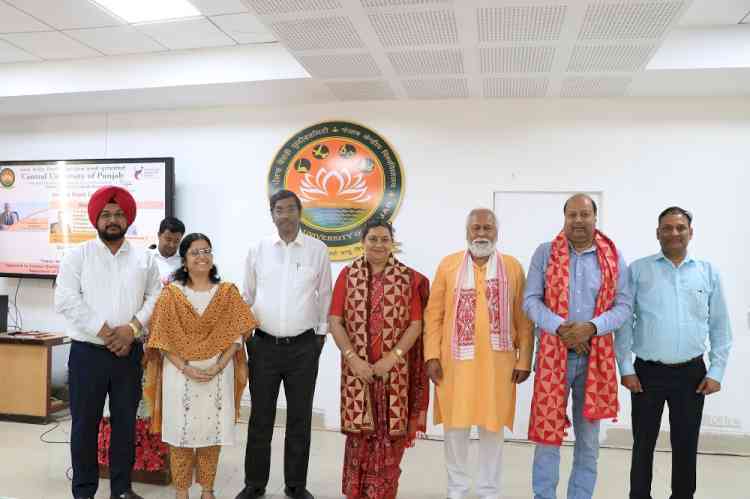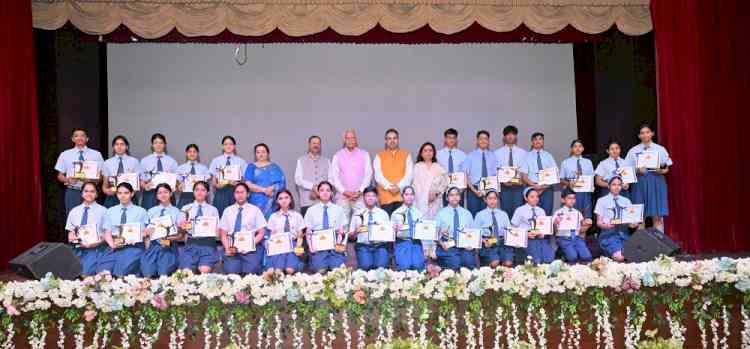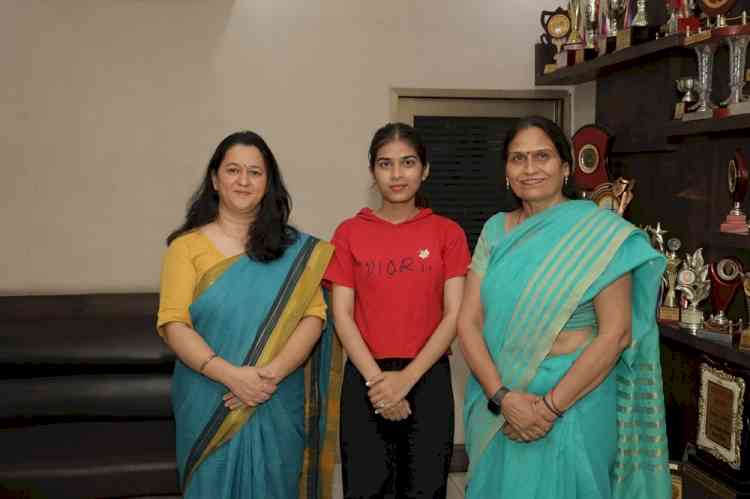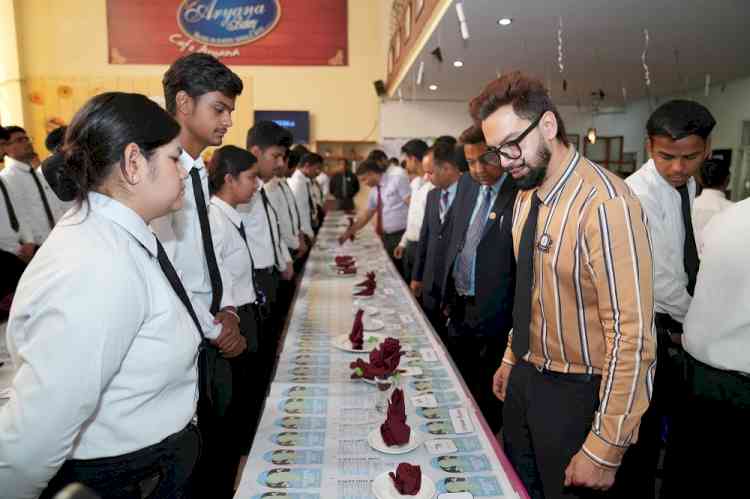CU Punjab Organizes Special Lecture Series on “Science Communication and Ethical Journalism”
The Central University of Punjab, Bathinda (CU Punjab), under the visionary leadership of Vice-Chancellor Prof. Raghavendra P. Tiwari, organized a Special Lecture Series on the theme “Integrating Science and Society through Science Communication” on Thursday. The event was jointly hosted by the university’s Internal Quality Assurance Cell (IQAC), Institution’s Innovation Council (IIC), and the Department of Mass Communication and Media Studies (MCMS).

Bathinda, April 17, 2025: The Central University of Punjab, Bathinda (CU Punjab), under the visionary leadership of Vice-Chancellor Prof. Raghavendra P. Tiwari, organized a Special Lecture Series on the theme “Integrating Science and Society through Science Communication” on Thursday. The event was jointly hosted by the university’s Internal Quality Assurance Cell (IQAC), Institution’s Innovation Council (IIC), and the Department of Mass Communication and Media Studies (MCMS).
This programme aimed to bridge the gap between scientific knowledge and the general public by fostering effective science communication strategies. The programme featured two distinguished experts — Prof. Ranjana Aggarwal, Director of CSIR-National Institute of Science Communication and Policy Research (CSIR-NIScPR), and Shri Sreekumaran N., Editor at The Daily Guardian. Both speakers shared valuable insights into the evolving role of science communication in contemporary society.
In her keynote address, Prof. Ranjana Aggarwal emphasized the importance of scientific literacy in a democratic society and the need to make scientific information accessible, engaging, and comprehensible for all. She highlighted outreach initiatives by CSIR–+NIScPR and the CSIR-Traditional Knowledge Digital Library Unit, which aim to bridge the gap between science and society through multilingual publications and citizen-centric platforms. Prof. Aggarwal stressed that science communication is a collective responsibility and urged scientists to actively contribute by writing popular science articles and leveraging social media for both outreach and in-reach activities.
Shri Sreekumaran N. offered a journalistic perspective on science communication, underlining the media’s role as a crucial conduit between scientists and citizens. He emphasized the ethical responsibilities of journalists in reporting scientific developments and spoke about challenges faced by reporters, including tight deadlines and on-field pressures. He also highlighted the importance of maintaining objectivity in reporting and encouraged journalism students to also develop their skills in layout and design, headline and caption writing, as well as visual storytelling through photos and infographics for a successful media career.
In his presidential address, Vice-Chancellor Prof. Raghavendra P. Tiwari spoke about the pivotal role of science communication in building a knowledge-driven society. He reiterated the responsibility of academic institutions to foster scientific temper and train students to effectively communicate their research to the public. He urged students and scholars to become proactive science communicators, especially in today’s digital age.
Prof. R.K. Wusirika, Dean Incharge of Academics, delivered the welcome address, noting that the event aligns with CU Punjab’s commitment to interdisciplinary learning and strengthening the science-society interface. Dr. Rubal Kanozia, Head of the Department of Mass Communication and Media Studies, introduced the invited speakers, while Dr. Aleem Khan moderated the session.
Prof. Monisha Dhiman, Director of IQAC and President of IIC, delivered the vote of thanks. She expressed her gratitude to the invited experts and stated that such platforms not only enrich the academic ecosystem but also inspire students to engage meaningfully in the public communication of science.
The event witnessed enthusiastic participation from students, researchers, and faculty members across disciplines, reflecting CU Punjab’s vibrant academic culture and its dedication to societal outreach through impactful dialogue.


 City Air News
City Air News 










